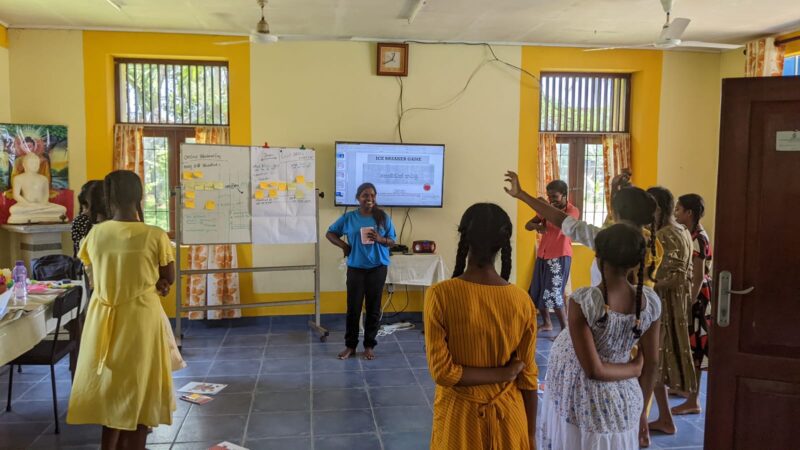Online violence against women is a pervasive threat on a global level, further exacerbated by the COVID-19 pandemic. UNESCO estimates that over 73% of women have been exposed to or have experienced some form of online violence such as harassment, doxxing, non-consensual dissemination of intimate images, stalking, rape/death threats, much of which follows victims in their offline lives. As more and more people have access to computers and smart phones in Sri Lanka, they are more exposed to online violence, and disproportionately more women than men.
The impact of online violence is manifold. Online violence moves to offline violence following victims into their daily lives. The effects manifest as psychological and emotional harm, reinforces social norms, prejudices, stereotypes and discrimination against women, damages to reputation and self-esteem, results in economic loss, self-censorship, damages family relationships, and restricts mobility. In Sri Lanka (like much of South Asia), there is a culture of victim blaming and women are reluctant to share or report abuse they face online, let alone what they experience in daily life. In 2020, around 15,000 cases were reported, and this is only a fraction of the women that face online harassment, since many don’t come forward to report.
Safe Sisters (SS) is fellowship program that trains women to understand, respond to, and train other women on how to handle digital security challenges in work and daily life. Through a combination of training, peer sharing, and small grants, these trainers go on to upskill other groups of women in their communities.
Since the initiation of SS program in 2021, the program has trained 26 women leaders who have trained over 300 women in eight provinces. As gender-based violence online has increased and garnered attention around the island, the SS program has been a timely initiative. Initially, SS focused on journalists, activists and human rights defenders. When women are targeted because of their work, they are increasingly forced to self-censor or go offline to protect themselves and their families.
Nimali Kumari, Project Coordinator at Sarvodaya, Sri Lanka’s largest NGO said that,
“This is my first time at a Digital Security training. And this training has made me cautious online, I think twice before I download anything on to my laptop or phone. The session on Gender Based Violence was important to me especially since I work for the Child Protection and Women Empowerment sector. In the field, I meet LGBTQI groups and because of this session, I am able to identify gaps and issues relating to this group. This content has been really helpful for my work”.
Over time, SS fellows identified other groups of women who are vulnerable online because of their work and circumstances. And subsequently, the program was extended to include transwomen, war widows, women government officers, undergraduates, women politicians and teenage mothers.
Teenage mothers in particular, were most vulnerable given their age and circumstance. Renuka, the Head House Mother of a teenage mother’s home said “Most teenage girls are here because of their ignorance. Some fell in love with strangers they met online and ended up pregnant. When the Matron and I attended a digital security workshop by /-SS Fellow-/ Nimali, we realized the importance of this workshop for us and the teenagers. And so, we asked her to conduct a training for the teenagers as well. The teenagers were shocked to learn the dangers of online. This training will help stay safe in the future.”
Over the last 3 years, SS trainers have been resources and guides in their communities, sharing their knowledge to keeping women safe in civic spaces, workplaces and daily lives. These efforts improve gender equality, support them in social and economic settings and propel democratic progress.
